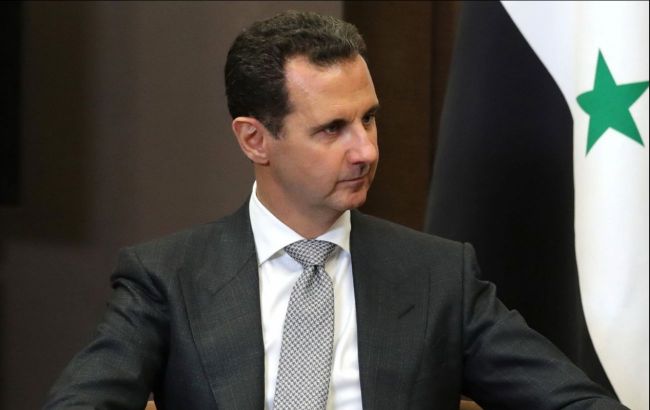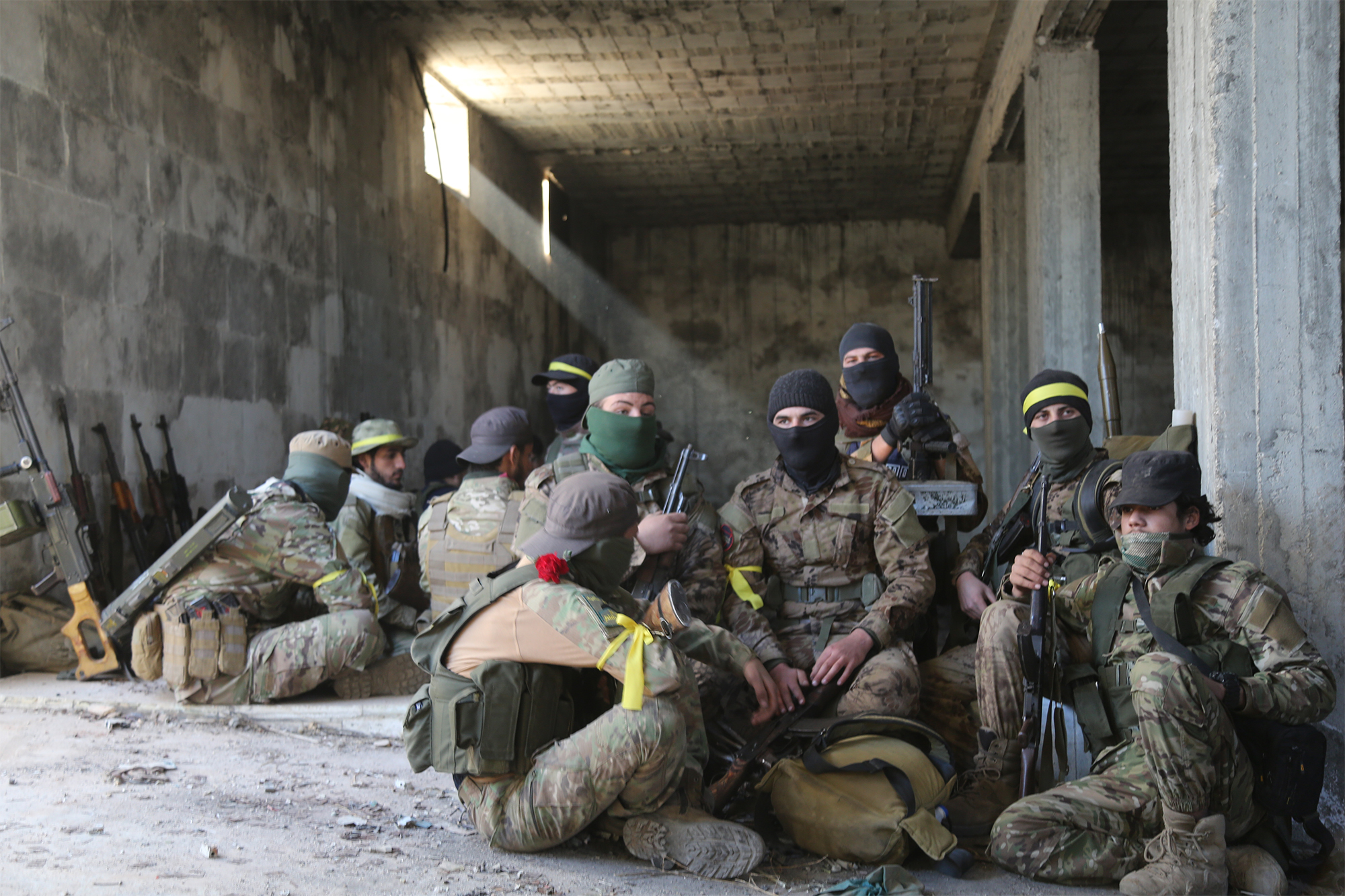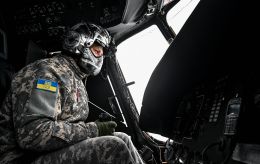Rebels storming Aleppo. What’s unfolding in Syria and where is Assad
 Photo: Syrian dictator Bashar al-Assad faced the greatest threat since 2020 and could have fled to Moscow (kremlin.ru)
Photo: Syrian dictator Bashar al-Assad faced the greatest threat since 2020 and could have fled to Moscow (kremlin.ru)
After four years of relative calm, a new phase of the civil war has begun in Syria. Opposition forces launched a major offensive on the second-largest city, Aleppo, catching the regime of Bashar al-Assad unprepared.
More details on the situation can be found in the RBC-Ukraine material.
Contents
- Major offensive and storming of Aleppo: What’s happening
- What forces clashed in the battles for Aleppo
- Army retreats from Aleppo, Assad may have fled to Moscow
Major offensive and storming of Aleppo: What’s happening
The offensive began on Wednesday, November 27, the same day that a ceasefire between Israel and the Iran-backed group Hezbollah came into effect in neighboring Lebanon.
Thousands of rebels, led by Islamists from Hay'at Tahrir al-Sham (HTS), are attacking the Syrian Arab Army (SAA) forces in the western part of Aleppo province. According to their statement, the Deterrence of Aggression offensive operation began in response to shelling. This marks the first significant escalation since the ceasefire in March 2020.
Within the first 10 hours, opposition forces captured dozens of settlements, seized the 46th Regiment base, known as Base 46, and advanced within 5 kilometers of Aleppo.

Photo: Fighters of the Syrian group Hay'at Tahrir al-Sham (Getty Images)
The day before, the opposition advanced in the eastern part of Idlib, reached the strategic M5 highway, and attacked the al-Nairab airport near Aleppo, where Iran-backed groups are present. They destroyed a helicopter, captured prisoners, and seized weapon depots, and military equipment. By the end of the second day, around 40 towns and villages were captured.
Today, after three days of fighting, the rebels breached defense lines in the western suburbs of Hamdaniya, New Aleppo, and Zahra, and entered the city itself.
"Our forces have begun entering the city of Aleppo," the newly formed rebel coalition was quoted as saying by CNN.
The Syrian army states that it faced "a large attack" initiated by "terrorists" with heavy weaponry and drones. Rebel commanders claim to have taken control of a military research center on the outskirts of Aleppo after "intense clashes with regime forces and Iranian militants."
According to observers, the rebels entered the western districts of Aleppo after detonating two car bombs. Reports also mention the death of several rebel commanders, including HTS’s executive forces emir Abu Hassan Al-Ma'arra and the commander of the Northern Storm brigade, Abu Obaida. The Syrian Observatory for Human Rights reports the following casualties: more than 100 HTS members, 20 members of allied groups, and over 60 government forces.
Meanwhile, videos of rebels in Aleppo are circulating on social media.
Celebrations at Dawwar Salahuddin in western #Aleppo pic.twitter.com/9KbQT4Z5Y9
— Dr. Zaher Sahloul (@sahloul) November 29, 2024
Forces loyal to Bashar al-Assad and allied Russian troops are conducting intense airstrikes on opposition-controlled towns and villages. Reports indicate over 20 strikes on the city of Idlib, as well as bombings in areas in northwestern Syria near the Turkish border.
It is worth noting that Aleppo, a major city with a population of nearly 4 million, will likely be challenging to capture quickly.
What forces clashed in the battles for Aleppo
A new offensive could result in the rebels taking control of Aleppo, which would deal a significant blow to Moscow and Tehran. This is at least the fear of Syrian, Russian, and Iranian forces, as Iran has yet to recover from recent losses suffered by its ally Hezbollah in southern Lebanon — a group on which Assad’s regime heavily relies.
Reports indicate that in the early hours of the Aleppo assault, a key commander of Iran’s Islamic Revolutionary Guard Corps, Kioumars Pourhashemi, was killed, while Russian aviation attempted to drive the rebels out of a crucial Syrian Army fuel depot in the Khan al-Asal urban district.
According to Iranian sources, the Syrian Army’s 25th Special Mission Division, formerly known as the Tiger Forces, has been deployed to Aleppo. This unit was trained by Russian military instructors. Other formations deployed by Assad include the Palestinian Jerusalem Brigade and the 4th Division, equipped with T-90 and T-72 tanks.
Additionally, Russia maintains two strategic military outposts in Syria: the naval port in Tartus on the eastern Mediterranean coast and the airbase in Khmeimim.
The last stronghold of the opposition is the city of Idlib and the surrounding province. It is primarily controlled by the Islamist group Hay’at Tahrir al-Sham, although rebel factions supported by Türkiye are also based there. Hay’at Tahrir al-Sham has been accused of extremist ideologies and ties to Jabhat al-Nusra, the Syrian branch of al-Qaeda, which operated until 2019.
HTS fighters inside Aleppo and at the gates of Aleppo - can you spot the ISIS patch?
— ScharoMaroof (@ScharoMaroof) November 29, 2024
They are raising the flag of Turkey across Aleppo - all you need to know if you’re wondering: how did this happen and who is behind it. pic.twitter.com/AMsrOSdTsh
Video: Syrian rebels in Aleppo
Turkish officials, speaking anonymously, stated that opposition forces in Idlib had long planned an offensive aimed at pushing back government troops. Previously, Türkiye had prevented such operations to avoid escalating tensions in the region. According to these officials, the offensive began following the failure of Ankara's diplomatic efforts. Its goal was to restore the de-escalation zone, but a limited attack on Aleppo expanded as Syrian government forces began retreating from their positions.
Western experts believe the fighting may have intensified with the approval of Turkish President Recep Tayyip Erdoğan, who is seeking stronger negotiating leverage with Assad amid the weakening of Russian forces in Syria due to the war in Ukraine.
The offensive appears to be meticulously planned, says Oleksandr Kraiev, an expert from the Foreign Policy Council Ukrainian Prism.
"We are witnessing changes not seen since the mid-2010s. This is a fully-fledged, deliberate, and well-prepared offensive, something even Middle East experts I communicate with did not anticipate," he told RBC-Ukraine.
Army retreats from Aleppo, Assad may have fled to Moscow
Nick Heras, an analyst at the New Lines Institute for Strategy and Policy (Washington), emphasizes that anti-government forces are in a better position than the Syrian army, despite Russian support, while Iran remains focused on Lebanon.
Rami Abdul-Rahman, director of the Syrian Observatory for Human Rights, states that Assad's troops were unprepared for the rebels' assault on Aleppo.
AP reports that Abdul-Rahman expressed surprise at the regime forces suffering such heavy blows, despite having Russian air support and early signs indicating that HTS was planning the operation.
As a result, according to the Turkish agency Anadolu, individuals close to Assad's regime are fleeing from Aleppo to Damascus. Regarding the Syrian dictator himself, unconfirmed reports suggest he has urgently traveled to Moscow. The Halab Today channel, which shared this information, cited unnamed sources.
Today, Russian presidential spokesperson Dmitry Peskov declined to comment on the rumors. "I have nothing to say on this matter," he stated, adding that Moscow views the rebel offensive as an "assault on Syria's sovereignty."
Syrische Rebellen haben ein Lager mit ruszzischen Waffen, Munition und militärischer Ausrüstung beschlagnahmt.
— DBerber (@BerberDoris) November 29, 2024
Regierungstruppen fliehen aus Aleppo. Die Rebellen sollen schnell vorrücken .
Wie viel Geld hat der Kreml für diesen Krieg ausgegeben? Und am Ende ist die größte… pic.twitter.com/trFFsBs9Y9
Video: Rebels Capture Russian Weaponry as Trophies
It is worth noting that Aleppo was the site of some of the fiercest battles during the early years of the Syrian civil war. The fighting involved Syrian government forces, later joined by Russia, against the Free Syrian Army opposition and other Islamist groups. Kurdish fighters from the People's Protection Units (YPG) also participated in the conflict.
A four-year stalemate ended in July 2016, when Assad's forces cut off rebel supply lines. In response, the rebels attempted counteroffensives in September and October but failed to break the siege. In November, government forces launched an offensive operation and by December had captured Aleppo. The battle was marked by heavy Russian-Syrian airstrikes and artillery shelling of residential areas.
***
The situation in Syria may work in Ukraine's favor, says Oleksandr Kraiev. According to him, the so-called "axis of evil" will do much to halt these movements, but when they gain systemic momentum, the process itself becomes important, regardless of the outcome. In this regard, it is significant that Russia will be forced to divert its attention to the Syrian issue.
"They will need to redistribute their resources, redirect their focus, and diversify their security. This is extremely difficult for them, given the losses they are suffering in Ukraine. So, one way or another, this is a positive development for us," the expert explained.
Furthermore, optimism regarding Syria is bolstered by the fact that the opposition's offensive coincides with Israel's continued efforts to eliminate Hezbollah, as the announced truce appears to have failed.
"Accordingly, when Iranian proxies lose a war to the key democratic force in the region, I have little reason to believe that democratic forces fighting against the Syrian regime will not succeed. The regime's key backer is currently facing defeat," Kraiev added.
Sources: Associated Press, CNN, The Guardian, Anadolu, and comments from Oleksandr Kraiev, an expert at the Foreign Policy Council Ukrainian Prism, for the RBC-Ukraine YouTube channel.

